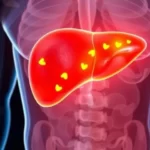The scope of Homeopathy roots trace back to 1796, when German physician Dr. Samuel Hahnemann proposed a revolutionary principle: “similia similibus curentur,” or “let like be cured by like.” Observing that quinine could both treat and cause malaria-like symptoms, he laid the foundation for a new system of healing.
Dissatisfied with the harsh treatments of his time-bloodletting, mercury, and purging, Hahnemann designed homeopathy as a gentler, more holistic alternative. His classic text, Organon of the Healing Art, remains the cornerstone of homeopathic practice to this day.
Core Principles of Homeopathy
At its heart, homeopathy is grounded in three fundamental principles. The first, “like cures like,” means that substances causing symptoms in healthy individuals can, when properly diluted, relieve those same symptoms in the sick.
The second principle is the “minimum dose.” Through a process called potentization, remedies are diluted and shaken vigorously to eliminate toxicity while preserving their energetic essence.
Lastly, the Scope of Homeopathy believes in the body’s “vital force,” an internal energy that governs health. Illness is seen as a disruption of this force, and remedies aim to restore balance from within gently.
Where Homeopathy Complements Modern Medicine
The scope of Homeopathy is not here to replace surgery or antibiotics, but it works beautifully as a complement to conventional care. Many physicians now use it alongside mainstream treatments for a more integrative approach.
Think of a patient recovering from surgery, Arnica montana can ease swelling and bruising. Or someone with migraines and regular scans, homeopathy may help rebalance the body, where tests fall short. It’s particularly beneficial in chronic, unexplained, or stress-related conditions where traditional solutions may not go deep enough.
Acute & Emergency Applications
Homeopathy shines when it comes to everyday complaints. Many households keep a basic kit to treat minor injuries, colds, or sudden ailments. Remedies like Arnica for bruises, Belladonna for fevers, or Aconite for panic can offer quick relief, without side effects.
These remedies are gentle enough for children and the elderly, yet effective when chosen correctly. They’re also fast-acting, dispelling the myth that homeopathy always takes time to work.
Managing Chronic Illness with Homeopathy
For those suffering from long-term health issues such as IBS, eczema, or hormonal imbalances, homeopathy offers hope. It doesn’t just suppress symptoms; it aims to treat the root cause, taking into account emotional stress, lifestyle, and even hereditary patterns.
Dr. Vikas Sharma, a leading homeopath in India, shares countless cases where patients found relief after years of ineffective treatments. The process involves detailed consultation, precise remedy matching, and time, but for many, the results are life-changing.
Mental Health Support
Homeopathy provides a gentle way to support emotional well-being. Whether it’s stress, sadness, irritability, or fear of failure, remedies like Ignatia, Natrum muriaticum, or Lycopodium can help restore inner balance.
These remedies don’t sedate or alter brain chemistry. Instead, they work subtly, encouraging the mind to self-correct. Of course, in severe psychiatric conditions, homeopathy should only be used under the care of a qualified physician or psychiatrist.
Homeopathy for Children
Children are naturally responsive to homeopathy. Their developing systems make them ideal candidates for this non-toxic approach. Parents love how easy it is not to fight over bitter pills or syrups. Remedies dissolve sweetly under the tongue.
From teething pain to recurring ear infections or bedwetting, homeopathy offers safe solutions without antibiotics or side effects. Behavioral issues and school-related stress can also be supported gently and effectively.
Healing Animals Naturally
Animals, too, respond beautifully to homeopathy. Pets and farm animals with skin allergies, digestive upsets, anxiety, or even injuries can benefit from carefully chosen remedies.
What’s striking is that animals can’t be “placeboed.” Their responses are often rapid and visible. Many holistic vets report great success using homeopathy for chronic or unexplained conditions in dogs, cats, horses, and even livestock.
Who Can Practice Homeopathy?
In countries like India, the scope of Homeopathy is highly regulated. Practitioners often undergo 5+ years of medical training, including anatomy, pathology, and pharmacology, alongside homeopathic studies.
In the West, regulation is more varied. Some homeopaths are medical doctors; others are trained lay practitioners. Always verify credentials, certifications, and clinical experience, especially when seeking care for severe conditions.
Scientific Evidence: A Mixed Bag
The Scope of Homeopathy remains controversial in mainstream science. Many studies claim no effect beyond placebo, especially for ultra-diluted remedies. Critics argue it defies chemistry and physics.
Yet, countless patients, doctors, and veterinarians continue to report real results, often after exhausting other options. Modern research is now exploring nano-medicine and quantum biology, areas that could explain how these remedies function at an energetic level.
Is Homeopathy Safe?
Yes, homeopathic remedies are safe for all ages, including newborns and pregnant women. They contain no harsh chemicals, and because they’re highly diluted, there’s virtually no risk of overdose or drug interaction.
That said, it’s important not to delay essential treatment. The scope of Homeopathy is as a support system, not as a substitute for urgent medical care. In skilled hands, it’s one of the safest healing systems available today.
Homeopathy Around the World
Globally, the scope of Homeopathy enjoys varying levels of acceptance. In India, it’s mainstream, with thousands of registered doctors, hospitals, and colleges dedicated to the field. Brazil, Mexico, and Pakistan also recognize it legally.
In Europe, countries like Germany and Switzerland have a strong homeopathic tradition. Meanwhile, in the UK and Australia, it’s under increased scrutiny, with public funding being cut but private use remaining widespread.
The World Health Organization reports that over 100 countries use homeopathy formally or informally in healthcare.
Common Myths Debunked
A central myth is that homeopathy is “just a placebo.” If that were true, how do we explain its effects on animals, infants, or unconscious patients?
Another misconception is that homeopathy is always slow. While chronic cases take time, acute conditions, like fevers or sprains, often respond within hours.
And then there’s the idea that homeopathy lacks science. While its mechanism isn’t fully understood, the clinical outcomes and global usage suggest there’s more to explore.
Conclusion
The Scope of Homeopathy offers a unique lens on health, one that values individuality, balance, and the body’s innate healing power. It doesn’t aim to replace conventional medicine but to work alongside it, addressing gaps where pharmaceuticals may fall short. Whether treating emotional struggles, childhood illnesses, or chronic fatigue, homeopathy invites us to look deeper, listen more closely, and heal more gently. It’s not about choosing sides, it’s about finding harmony. In the end, real healing is holistic. And homeopathy, with its rich history and compassionate approach, deserves a thoughtful place in modern healthcare.
Frequently Asked Questions
Can homeopathy replace modern medicine?
No. It complements conventional treatments and works best as part of an integrated approach.
Is it safe for babies and pregnant women?
Absolutely—when prescribed correctly, it’s one of the safest systems available.
Does it work?
Many people experience profound relief, especially in chronic and functional disorders, but it’s not a magic bullet.
How fast are the results?
Fast in acute cases; slower in long-standing illnesses. Patience pays off with chronic care.
Can I take it with other medications?
Yes. Homeopathic remedies generally do not interact with conventional drugs.











